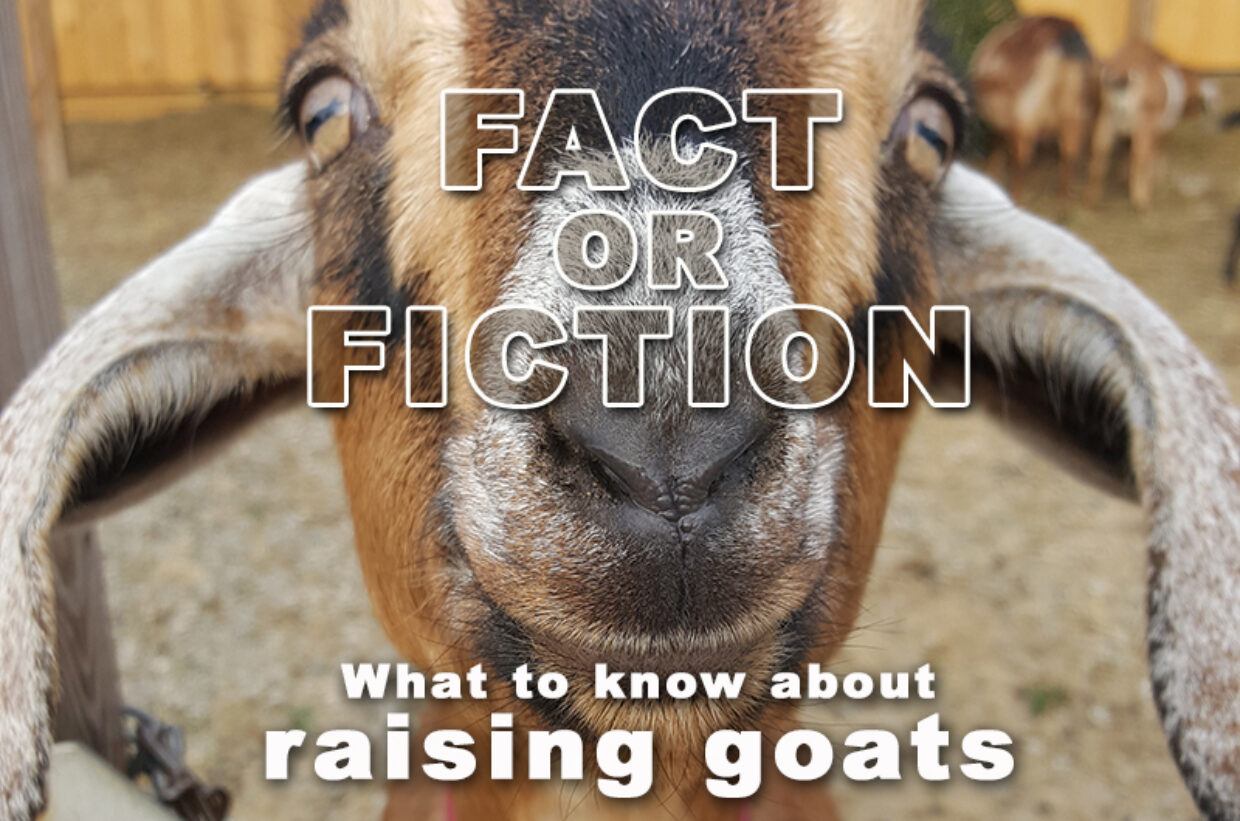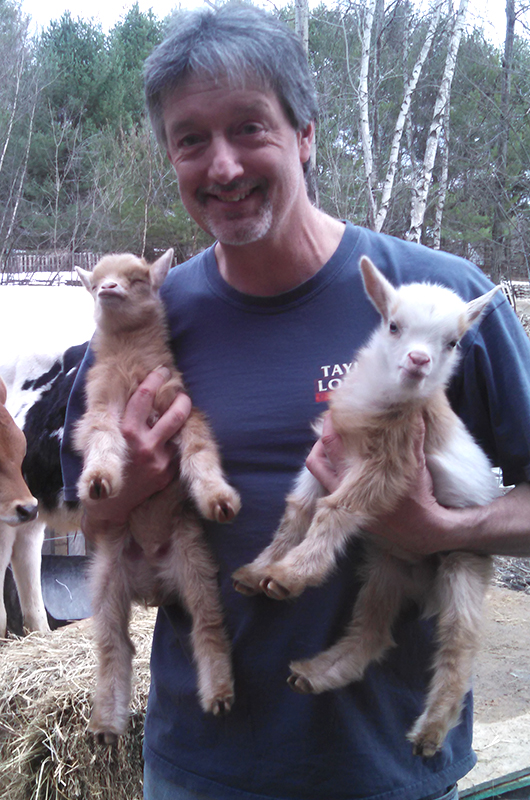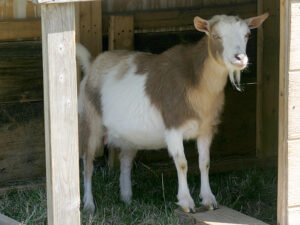Fact or Fiction – What to know about raising goats.

Looking back at some old photos the other day, I came across pictures of our very first goats, Jack and Stella.They were brother and sister Nigerian Dwarf goats. They were absolutely adorable with fuzzy fur and blue eyes and Dennis was completely smitten. (Okay, maybe I was, too.)
Back then we had no idea what we wanted to do with the goats other than have them as pets. Had we known then what we know now, we probably would have approached the whole thing a lot differently. But like everything else, we jumped right in with both feet.
Dennis did a lot of research on owning goats but like everything else on the internet there was a lot of contradiction and it was hard to tell what was true and what wasn’t. Through trial and error and meeting more and more goat owners, we’ve learned a lot about what is true and what is false when owning goats. And I’m going to share some of that here with you.
You shouldn’t have just one goat. FACT
A single goat is a lonely goat and lonely goats get into a lot of trouble. Goats are herd animals and feel safe in numbers. The more goats you have the more relaxed they are. Goats will “herd” with other animals, like sheep or horses, but you should really have at least two goats, so they have a “buddy.”
Different breeds have different purposes. FACT
The breed of goat you decide on should be determined by your reason for having goats. Are

you looking for milk, meat, fiber or just pets? Once you have your answer start researching those types of goats, but then find people in your area that raise those breeds. Goat owners are generally happy to answer any questions you may have about their breed of goats. And you may find a good source for your own stock along the way.
Goats are “maintenance free.” FICTION
I started seeing this term online a lot and it really gets me riled up. Goats actually require a fair bit of maintenance. We trim our goats’ feet every couple of months. We monitor their health on a daily basis. Every spring we give the goats their shots. We test our herd for certain types of diseases. We breed our goats, which adds another whole layer of maintenance. Dennis cleans their barn every day to ensure they have a clean place to eat and sleep. They need a well-balanced diet including quality second cut hay and for our breeding/ milking does we include a high protein sweet feed. So, yeah, not quite maintenance free.
If your fencing doesn’t hold water, it won’t hold a goat. FACT (sort of)
 Our smallest goat, Maggie, is a Nigerian who can clear a five-foot wall. We’ve seen it. One of our Nubian does cleared a four-and-a-half-foot wall. Your best bet when it comes to fencing is to give your goats a reason to stay inside the fence. A clean safe place to eat and sleep, toys to keep them occupied and friends to play with. We use four-foot cattle panels with 4×4 wooden posts for the pen area and a four-foot electric netting fence when we put them out in the field to graze. Yes, if they really wanted to, they could escape. But the world is scary, and they know they are safe within their boundaries.
Our smallest goat, Maggie, is a Nigerian who can clear a five-foot wall. We’ve seen it. One of our Nubian does cleared a four-and-a-half-foot wall. Your best bet when it comes to fencing is to give your goats a reason to stay inside the fence. A clean safe place to eat and sleep, toys to keep them occupied and friends to play with. We use four-foot cattle panels with 4×4 wooden posts for the pen area and a four-foot electric netting fence when we put them out in the field to graze. Yes, if they really wanted to, they could escape. But the world is scary, and they know they are safe within their boundaries.
Goats eat everything. FICTION
I think this idea comes from the fact that they are curious creatures who use their lips to explore their world. That and the old cartoons that use to show goats eating tin cans. Truth is, goats are picky eaters. Some of our goats like apples and carrots, some of them don’t. Our neighbors drop off their Christmas trees when the holidays are over. Some of the goats love them, some won’t even touch it. And if something falls on the ground? Forget it. Even if I wipe it off they won’t eat it. Goats are ruminants, which means they have four chambers within their stomach. It doesn’t take much to upset them. Even the change in hay can cause havoc. We are extremely cautious in what we feed our goats. Make sure to do research on what plants are poisonous to goats and keep those away from your herd. Yes, they can eat poison ivy, but rhododendrons can be lethal.
Have more questions about raising goats? Are you interested in starting your own herd? Contact us for more information.
Reply